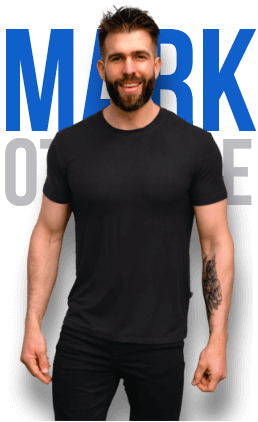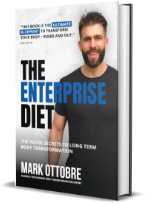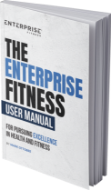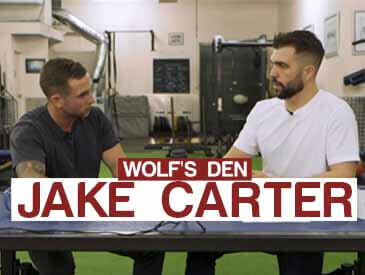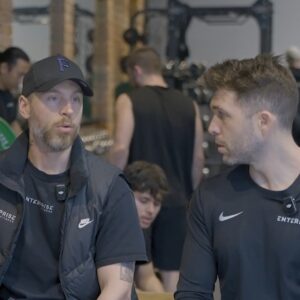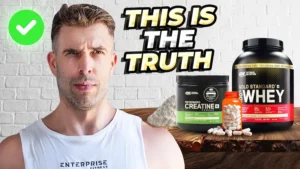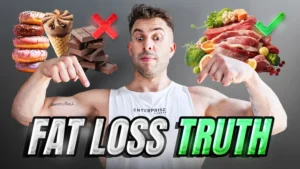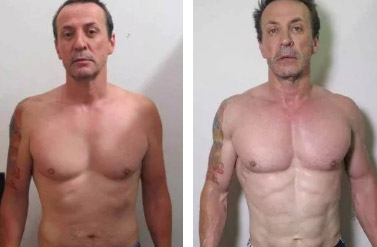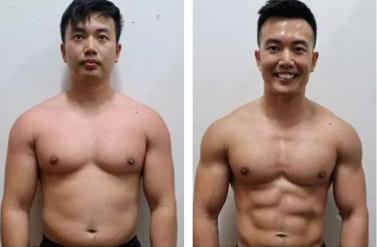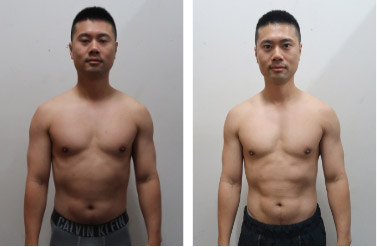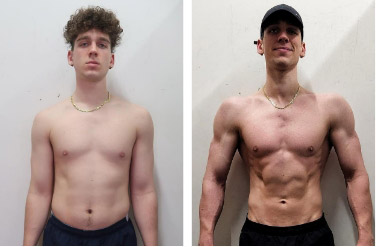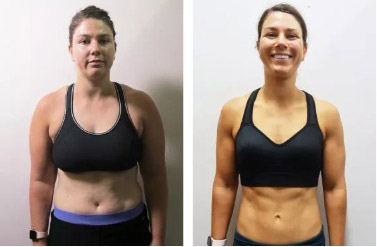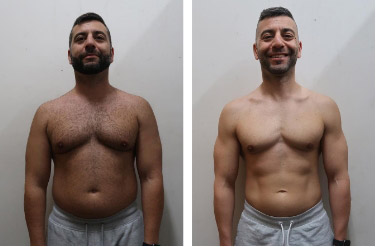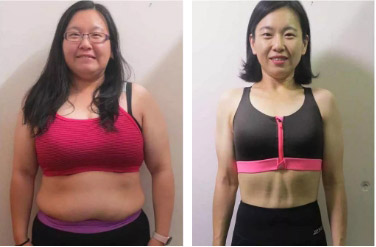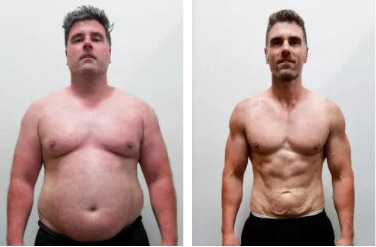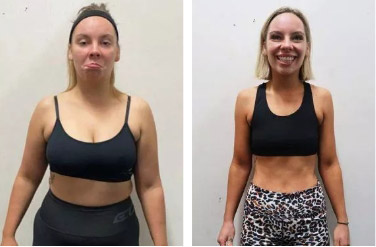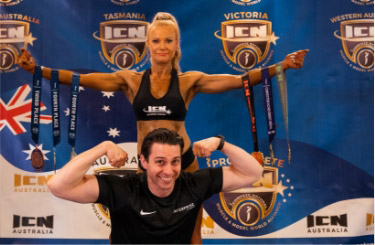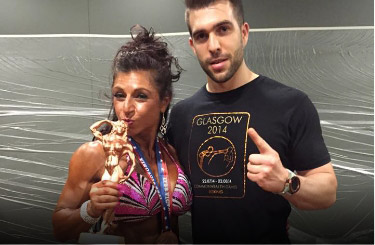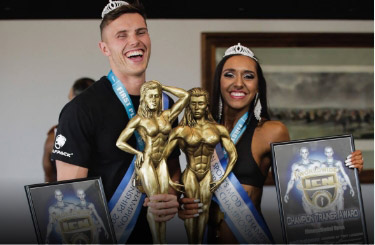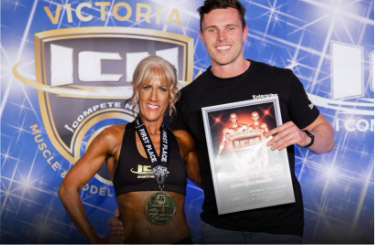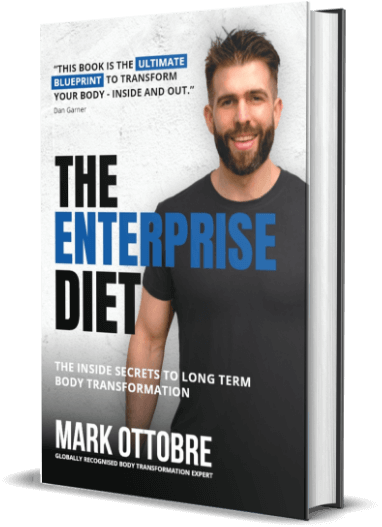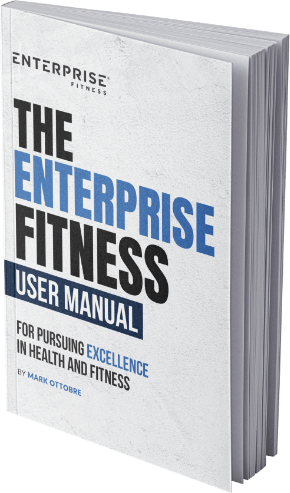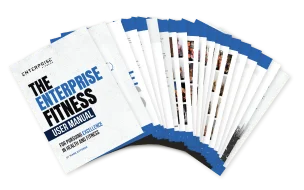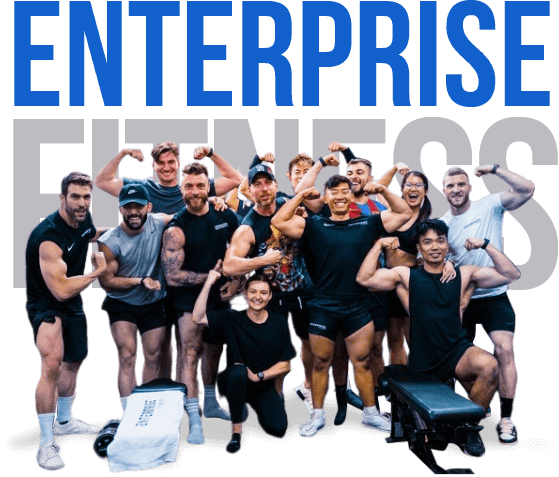Comp Prep Advice from Pro Trainers
Join us for this episode of the Wolfs Den where Enterprise Fitness Trainers, Mark, Liam and Marshall sit down to talk online comp prep.
Available now on Youtube, iTunes and SoundCloud.
Transcription of the episode, Comp Prep Advice from Pro Trainers
Please note, this transcription may contain errors;
– Welcome to the show that punches you in the face with information. Welcome to the Wolf’s Den. My name is Mark Ottobre, and I am joined by these fine two gentlemen, our Comp Prep coaches here at Enterprise Fitness. I’m joined by the ever so lovely with voice of silk and smooth, Marshall Tan, and the fantastic Liam Fitzgerald. Today, we are here to talk about a comp prep in all of its glory, from its problems to the time that you get up on stage and get that trophy. Gentlemen, let’s talk comp prep. So what are our, let’s, let’s just start at the, at the very start, right? Let’s, the very start. I want to compete, right? I’ve never, never may never have been to a show before, right? But I want to compete and I see these amazing bodies on stage and these people on Instagram, and I think, wow, I want to look like that. What’s my first steps? What are my first thoughts?
– Alrighty, so with our clients, basically we take them through our session one, which covers everything nutrition biased. Okay. So what we’re looking at is client goals, timeframe, their body type, their past training and nutritional history, and how compliant they’re going to be. Okay. So once we’ve collected basically all the data on the client, we then take measurements or photos and then we start basically mapping out their training day and non training day nutrition to set them up for their goal. Now with me, or anyone who’s doing a competition, we’re basically looking at the end date, which is the competition, and we’re basically working back from there. With that said, we might plan out a building phase and a dieting phase to get them to where they want to be. Do you have anything to add to that, Marshall?
– Yep. It definitely depends on how much lean mass they have. And we have already accumulated the data that they already have. So whether they’ve been training for quite some time, or they’re just a complete beginner there. So either or they can compete, but it’s a question of why and if they’re ready at that point.
– And also like the timeframe as well, right?
– Yes.
– Like how much time do we have with this person? ‘Cause like, ideally we’re going to have more time. I mean, if they’re a complete newbie, you know, it might even be as much as 12 months, two years.
– Very true. Very true. Because like Liam said, we do need a building phase, and we do need to know how the body reacts, so that’s the biofeedback there, self there.
– Yeah. We want to set people up to do this the right way. They want to be super, super healthy, and we want to get them the best result. So first things first, we actually focus on building that foundation. Okay. Now obviously if I’ve got a really solid foundation, walls are going to be super, super high. So we need to make sure that-
– The walls are going to be super high? Just explain what you mean by that.
– Well, let’s say it’s a pyramid. The bigger the base, the pointier the top with the higher you can actually go with it.
– Right. Right. Right.
– Yeah.
– Yeah. Yeah.
– So we want to, because we want to get them to have the best result and the best time possible doing this.
– Enjoy it. Definitely enjoy it.
– We want them to enjoy it.
– Because it’s a challenge, but you can actually enjoy competing too, too.
– Correct. Correct.
– Yeah.
– Now.
– And most people don’t.
– Correct.
– Most people hate it.
– So hear me out here.
– Yeah. Yeah. Yeah.
– If you come in, and you’re eating 1300 calories-
– Very low calories, by the way.
– Very low calories to start with. Anyone, anyone who knows 1300 or any kind of warrior food is not that good for you.
– Anyone knows that 1300 knows its not a good guy
– It’s not a good number
– Pretty hungry at that point, they’re pretty hungry, yeah.
– So, if you’re already eating 1300 you’re going to have to diet very, very hard. And sometimes you, you probably gonna look worse. You might even gain body fat, eating super, super low calories. You’re just not gonna have a nice enough time. So what we want to do here is we actually want to build up the calories. So we’ve set a new point and we basically work down from there. Okay. Does that make sense?
– Exactly. Create a new set point there, because if they’ve if they’ve been dieting for 1,300 calories for quite some time there and if they’re not losing body fat, where else do you go? Do you drop more calories?
– Or increase more cardio?
– Oh yeah, that’s just horrendous.
– That’s what so many coaches do.
– That’s the wrong approach.
– Yeah, and that ends up driving people down into a hole with physical exhaustion and you know emotional issues and bad relationships with food. So basically what I get from you gentlemen is essentially the way we do it is and what we want people to understand is that we start with sound health practices. That’s essentially the base then up from that is kind of sound training practices, sound nutrition practices. And that all has to happen and occur before someone considers a competition. Because what you see a lot of the time is people then say I’m going to get in shape to do a show. When you really want to be in shape, then decide to do a show. And if you’ve got that base solid then you can actually have a really good time competing. Whereas most coaches and people what they do is they see the picture on Instagram “I wanna look like that. What’s that person’s doing.” And they jumped straight to that. Meanwhile, they’ve probably, you know Instagram filter, performance-enhancing bot,
– Implants, that’s been all the rage.
– Implants, yes, very, very common thing these days by the way, very common thing
– I like to actually start off with the hunter-gatherer pact or fish. Mark’s explained this to general pop clients a long time, but I actually use this with competitors from the get-go. I actually take them back in time start them off on-
– Whole foods
– Whole foods, basically. or, you know, 90%, whole foods. And I go building from there because if you’ve just come to me, Marshall, or Mark, or anyone even though we might have an in-depth food log and we might’ve collected a lot of data we still might have missed things. So it’s still good to start off regressed and build from there.
– You don’t want to assume, never.
– No, I don’t want to assume anything, because I don’t want to take chances.
– Yeah.
– This is someone’s physique. This is someone’s chance of getting a first place. This is someone’s health.
– Exactly. With that being said that’s not much of a regression there. It’s more of creating that foundation, not even a step back two forward like the classic session itself there. The basics, getting them to eat healthy nutritious food that actually build and nourish their body. And I believe that, you know-
– That’s part of the base, though.
– That is part of the baseline there.
– So, so let’s just say theoretically, right. And also just actually, before we segue into that, you know the old model in nutrition that I see a lot of the time is, you know that the pyramid of nutrition, which is at the bottom you’ve got your calories and macronutrients, micronutrients and then meal timing, supplements, right? I don’t like that model because it suggests that one is more important than the other. I like to make it a circle, right. And have those equal parts and not actually do with it for the client in terms of calories and macronutrients, whatever but rather things that they can focus on. Like, areas of focus, which are things like sleep, gut health, quality of food, training, lifestyle, stress. These are things that we very much have control over, and each area interacts with the other. And I think this is where our approach to coaching is a lot more encompassing and holistic for a competitor because too often what we see with competitors is: Here’s the plan. Go, go and do the plan, do it for 12 weeks and l- you do the plan for 12 weeks, you will get lean. Yeah. You’ll get, but what happens after, right?
– Yeah, that’s the question: Are they going to put on five kilos? Are they constantly going to binge? Are they going to feel very depressive or not even enjoy the whole experience itself there? So, I mean, at the end of the day, we are here to create that foundation to make sure that we prevent those scenarios there. Because those scenarios are never good.
– No, never good.
– Never good.
– So, really we got to focus on that- I know we keep coming back to this- We gotta get that base right.
– It is very important.
– The thing is as well, when we do build a base and you do have a chance to do a building phase get someone better, get someone in a better place with their eating, training. You’ve also got a chance to develop someone’s physique a little bit better. Now, as a coach here at Enterprise, obviously where almost looking people straight down inside your planes and we’re basically like seeing: are things symmetrical? Are things big enough?
– Do they move?
– Can they actually move? Do we need to develop more shoulders, more arms, more core, more glutes?
– What’s the movement pattern just in general?
– What are your movements like
– Can you retract? Can they do a depression of his scapula there? So we might be able to prescribe all right, cool. Do a lat pulldown there, but can they actually do it? So we do have to coach them through it or actually give them example as to how they going to do that from a structural balance point.
– This is where it makes online training quite tricky.
– Yes, because cookie cutter plans, which basically someone with a high following or something just gives out plans doesn’t quite work for everyone
– No.
– Because they’re not personalized because there’s so much data to be taken into consideration. Like we could have the same plan but you’ll muscle mass might be a lot more than mine. I might move better than you. You might need to focus on quads, I might need to focus on back.
– Exactly.
– Why are we doing the same plan?
– We’re two very different people.
– It’s not personalized.
– Yeah. And then when you factor in online on that, I know you guys you both do online training, you have clients, you know kind of over the world doing different things. But one of the things that I see with online is that it is very tricky and that the online process has to really be by application only, right? Like a lot of the myths and people think you can just get everyone you know, “I’ll just do that plan online.” And the thing is, I mean there are some really good online coaches and then most of them, let’s be honest, actually really bad online coaches because online coaching, in and of itself, you haven’t done the time on the tools, face-to-face. You’re not aware of the things that are going to go wrong when you go online. Because when you go online, it’s like you don’t see that client move. You don’t know their nutrition. So I know the way we do online is completely different. And you’ve had, both of you have had unbelievable success with some of the clients that you have online- we can talk about Alessandra in a sec. Do you wanna tell us like, actually, like what are the differences that make a difference? I know one of them is the weekly check-ins on the phone and actually talking to them. And before all that, one of the big differences is actually the application. It’s like, we’re willing to say to someone this is not right for you. Go find someone in your local area because we’d love to coach you, but it’s going to be a waste of your money and a waste of our time, basically. So you want to talk us through some of the stuff that you know you’ve done online and also with Alessandra in recent time.
– Yeah. Yeah, of course. So, one thing I did want to say is, like, I have said no to people and it is hard for me to do, but it the right thing to do because they need to see a coach face to face to get more out of it.
– Exactly. Face to face is technically easier because literally you see how they move you see what they speak. You see every single thing possible there. And that’s a very big part of the whole process itself there. So online coaching can be a bit tricky there but we do have clients sending videos of themselves performing certain exercises there.
– I actually ask for videos.
– Yes.
– I want to see-
– Yeah you gotta get into the granular. You’ve gotta get into the granular.
– You have to see how they move and that’s a very important thing. And that’s how we actually program per se. And that’s why it’s very personalized that way.
– And I always used to do photos of their food as well.
– It does help.
– Because it’s like well, when I say this is what I want you to eat, it’s like, well are you actually like, did my message actually get across? Because if I say chicken I didn’t mean crumb chicken.
– Chicken thighs, fried chicken, KFC.
– Yeah, there’s so many things that people go, “Ah, chicken nuggets” Right? Like, no, no, no.
– Take-out chicken.
– Yeah, how do you cook it? Like, what are you using? What oils are you using? Like it’s going to be exact.
– Yeah. It makes it very hard when more and more people want to do comp preps in eight weeks, 12 weeks, 10 weeks when they’ve got no idea of the fundamentals, you know like food prepping skills, they know how to read labels. And all these little things: they know how to train, they know how to use progressive overweight. All these things that tie in. And they have no idea how long it actually takes to get good at these things, but they’re doing it. And they want to do it in eight, 10, 12 weeks, which is going to hurt them in the long run.
– It’s very easy to get someone very lean. Put them on a very aggressive diet and put them in a very aggressive expenditure. But it’s a case of what happens after. And I believe that’s one of those things that we do take account to the after care of that. Yes. You might lose 10 kilos. Yes. You might, you know, miraculously look amazing after, but how your health, what happens after that 12 weeks there? Do you regain the weight or do you have a very healthy relationship with food? Hence, you’re gonna actually keep that weight loss and actually feel good year-round and be the optimal you. Especially after comp prep itself there, too.
– So, what I’m hearing from you gents is that there’s two primary issues with comp prep in the industry, as an industry whole at the moment. One is people see people getting up on stage and they think I want to do that and they don’t have a realistic timeframe of how long things actually take. Number one. What was the second one that you guys alluded to? It’s just people being too aggressive with the diets. Is that the second problem?
– Yes. Being uneducated and not knowing and just following a coaches commands or guidelines.
– Well, that is a real problem, because how would someone who hasn’t competed before know any different?
– That’s what this podcast is here for. We’re here to educate the general public who actually wants to compete and let them know that yes, we can do it in a healthy manner. Yes, we don’t need to lose our period, for women, to actually be stage lean. And we can actually come out of this in a healthy manner, physically, as well as mentally. Mentally is a very big underlying thing which a lot of coaches forget because all right, cool. We are prescribing food. We are telling them, eat this, eat that there. But people don’t realize that that’s changing the mentality of the human being too.
– All right. So let’s just switch topics a little bit. That was my drift sound. Changing gears. So we have the person watching, they want to do the comp first time, you know, they don’t know what they don’t know. You know, they see the person on Instagram. They’ve got the abs, they’ve got the bum, the fake bum implants. They can’t tell any different. You know, most people can’t tell with a good filter. You know, you can’t tell any different. Where did they begin? Where did they start?
– Well, I think one of the most important things is as a coach, you have to understand their value. Why they’re doing these things, and what their current workout is, what their current factors are outside of the gym. Like, do they have kids, are they sleeping? All these things, take into a big consideration of what a person’s going to be able to do in the gym and out the gym. So, and then also on top of that things, like, what do I do? I might be really compliant. Marshall, we know for fact, is not compliant.
– Sometimes.
– Might take him a little bit longer to get to that result as it would be me where I’m pretty much a straight shooter. Everyone’s different. And that’s where a lot of these coaches are doing cookie-cutter plans as well. So the plan for everyone-
– What’s a cookie-cutter plan? For those who don’t- haven’t heard that term before?
– A cookie-cutter plan is something that I would just give to everyone no matter what. It’s not personalized.
– It’s a very generic plan. Pre-made and just sent to every client possible there just for the, you know yeah, just for ease.
– Well, why is it important that we personalize our plans?
– Because we got to take into consideration client goals, timeframe, their body type, fat mass muscle mass,
– Training
– Their past training history, eating history
– Relationship with food and psychology. If whether competing is actually a good idea for them. Sometimes we might take a step back and ask them, “All right, are you actually ready for this journey itself there?” Because it is a challenge. It is a challenge. And people forget that- “Oh, since everyone on Instagram is constantly lean or doing competitions, I should definitely do it.” So it’s good to take a step back and, like Liam said, reassess values and think, “All right, is competition for me? Or is it a case of just transforming my body, my mind, and eventually going to that stage of competing” when they’re ready for that challenge.
– So what’s different between, would you say, competing and just doing a transformation? Like someone’s like, “Really look, you know, I want to get myself in shape.” Cause what I see a lot of is like, “I want to get myself in shape,” and then the next assumption is, “I’m going to do a show.” What are your thoughts on that?
– Well, doing a show means that you are going probably a little bit leaner than a general transformation. So it can be pretty sustainable for some people to do to get a transformation where they get to maybe 15%, maybe 10%
– Depending male and female,
– Depending male or female,
– maybe up to 20%, yeah.
– female for 15% or maybe lower, yeah.
– Depending on, again, body type, all that kind of stuff. Where, with a competition, you’re actually going for a certain look. And for bodybuilding, this is probably for example, you are as lean as you can be. You want striated glutes. You want big quads. You want a small waist. That’s quite different to just a normal transformation, where you just trying to get a little bit leaner. Or you’re trying to get a little bit more muscle mass.
– Yeah, so a saying that I like to use is: You get in shape, then you do a show. You don’t get in shape to do a show. Cause that always leads to right. Your thoughts, Marshall?
– Completely agree with what Liam said there. There’s the difference between the transformation and the competition itself there. You have to be ready with every bit, let’s say foundationally-wise, before competing. Hence you know, it’s a very common thing for us to actually figure out what their foundational situation is. Whether they are training age, their relationship with food, the relationship with themselves, the reason for competing, and structured balance and such, too
– If you’ve made it this far in this video it means one of two things. One, you really want to compete. Or two, you want to improve upon a previous result and be your very best on stage. Either way, my coaches at enterprise fitness can help. So reach out to the team at [email protected] Or shoot us a message on Instagram. Thanks for watching. And until next time train hard, eat well, and supplement smart.


